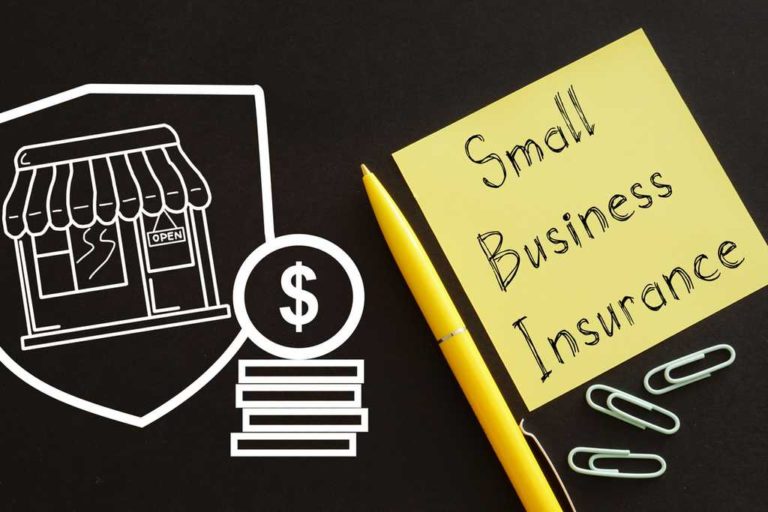Business insurance, also known as commercial insurance, helps safeguard a business against unexpected risks and unforeseen circumstances. It’s vital for any business that wants to take its operations seriously.
Aside from the peace of mind it gives owners, having the right insurance policy can increase customers’ trust and confidence in their products and services.
Protect Your Assets
The assets of a business are the lifeblood of its operations, and these valuable resources can be at risk if the right insurance policies aren’t in place. In many cases, the loss of an asset could cost a company thousands, if not millions, in financial losses that could impede its ability to operate. As a small business owner, you have a lot to juggle, from selling products and hiring employees to keeping records and mopping the floors at your company. While exploring insurance might fall on the priority list, it’s a vital step to take to protect your business. Generally speaking, a business owner policy (BOP) is a great starting point to explore since it covers numerous risks a small business may face during day-to-day operations. Other essential coverage to consider are property insurance, workers’ compensation, and commercial auto insurance, each offering a specific level of protection. Depending on your company, some of these policies might be required by law while others are not, so research to find the coverage that best meets your company’s needs. Asset protection is another area where insurance can be a handy tool for a small business, as it helps to legally separate the owners’ assets from those of the company. Hence, they are not at risk of a lawsuit or bankruptcy.
Protect Your Employees
There are about 30.7 million small businesses in the United States, and many of them need insurance. While a business owner may think of insurance as an extra expense, it’s more cost-effective to pay for the policies than to lose out in the event of damage, lawsuits, or other unexpected expenses. Some types of insurance are even required by law in certain states, such as workers’ compensation and commercial auto coverage. Failure to retain these policies exposes a business to the risks they are intended to cover and can lead to governmental action, fines, or other penalties. While some types of small business insurance are optional, others can help ensure a company’s profitability and competitiveness. For instance, a professional liability policy can protect a business against negligence or inaccurate advice claims. Employees are a critical asset for most companies, and the loss of one person can be catastrophic. Small business owners can also purchase workers’ compensation insurance to help mitigate employee risk and general liability insurance to protect against property damage or injury caused by business operations. As a result, it’s essential for small business owners to carefully consider the different insurance options available to them and make informed decisions based on the specific needs of their businesses. It’s also a good idea to consider bundling policies to save money. This can mean fewer bills to track and a single number to call for questions for your clients. It can also reduce the potential for gaps in coverage.
Protect Your Business
Insurance is an unnecessary expense to a small business owner. But, one accident or lawsuit could cost a company thousands or even millions of dollars and end its financial stability. Proper insurance can prevent this and give owners peace of mind. Depending on the type of business, some types of insurance are required by law, leases, or client contracts. Some examples include workers’ compensation, commercial auto, and property insurance. In addition, some business owners may carry directors and officers (D&O) liability insurance, which covers legal fees and expenses for company leaders who are sued for decisions made in managing the business.
Insurance can also protect customers who purchase goods and services from the business. For instance, cyber liability insurance can cover the costs of notifying and providing credit monitoring to impacted customers during a data breach or other cybersecurity incident. Each business is unique, so a licensed insurance agent or broker can help determine each company’s risks and needs. Assessing these and evaluating different options can help owners select the right policies to protect their businesses. With so much riding on the success of a small business, entrepreneurs must take all necessary steps to protect their investments and ensure long-term security.
Protect Your Assets
There are a variety of strategies that business owners can use to protect their assets from the liabilities of their businesses. One of the most popular is structuring their business as a limited liability company or corporation. This creates a legal separation between the personal assets of the owner and those owned by the business, protecting the owner’s assets from the reach of creditors or lawsuits. Another common asset protection strategy is to open a separate bank account for business expenses. This helps keep personal and business finances separate and makes it easier to track spending and income. Another option is to invest in retirement accounts, such as IRAs or 401(k)s. These investments are typically protected from creditors and can provide a long-term financial benefit for the business owner. Liability and property insurance policies can also help shield personal assets from the risk of a business liability. Many small businesses buy these policies in a business policy (BOP) package. It is essential for business owners to regularly review their policies and consider other ways to strengthen their asset protection plan. In addition to ensuring that their insurance coverage is up to date, they should also ensure that their insurer has a good reputation for customer service and is financially stable to cover any claims that may arise.
